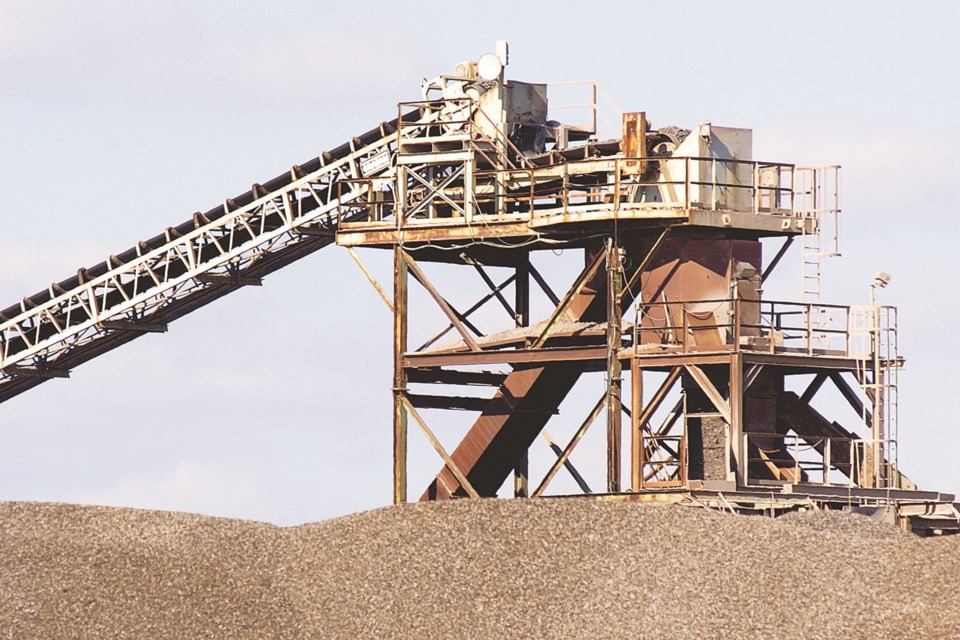A judge from the Court of Queen’s Bench has sided with a Rocky View County (RVC) resident in his fight against the County and several gravel pit operators by setting aside four gravel pit bylaws – three from 2017, and a fourth from 2018 – following a judicial review.
In his Sept. 16 ruling, Justice James T. Eamon wrote, while council had jurisdiction to decide whether to pass the bylaws, it “proceeded on seriously and obviously deficient [Master Site Development Plans (MSDP)] and failed to consider cumulative aspects of extraction in the area” such as noise, traffic and dust in passing the 2017 bylaws.
“In doing so, council undermined the purposes of the County Plan and acted contrary to the objectives of good government under the [Municipal Government Act (MGA)],” he continued in the 33-page decision. “The outcome was patently unreasonable.”
Meanwhile, the 2018 bylaw was “so closely connected to the earlier bylaw that it must be set aside.”
The bylaws, which redesignated land to facilitate gravel pits for Summit Aggregates Ltd., McNair Sand and Gravel Ltd., and Lafarge Canada Inc., proposed aggregate extraction operations in close proximity to each other and another existing gravel pit along Highway 567, near Range Road 40.
Keith Koebisch, a neighbour of the proposed pits, applied for the judicial review because, according to the judgment, he felt council did not address the cumulative impacts of the pits and treated him unfairly.
According to the ruling, a public hearing was held for the Summit bylaw June 14, 2016, before it was tabled. The public hearing was resumed June 27, 2017, after which it received first and second reading, with third reading occurring July 11, 2017.
Public hearings for both the McNair bylaw and the Lafarge Bylaw occurred July 11, 2017, as well as first and second reading for both. Third reading followed July 25, 2017.
A public hearing for the Summit Expansion bylaw took place April 2018, and all three readings were granted at that time.
Justice Eamon noted the information presented during the 2017 bylaw proceedings “contained many serious gaps.”
“The bylaw applicants essentially expressed varying forms of commitment to mitigate cumulative impacts, and later work out whatever problems might arise,” he wrote. “Council and the public only received vague commitments in response to problems of unspecified magnitude.”
The purpose of the MSDPs, Eamon wrote, was to ensure enough information was provided for “meaningful decision-making and public input,” and it was “irrational” to think councillors or the public could understand the cumulative impacts of the redesignation applications “based on the meagre amount of information in the MSDPs.” This constituted a “patently unreasonable departure” from the requirements of the County Plan.
“If the cumulative aspects of aggregate extraction are not meaningfully disclosed and addressed during the redesignation phase, then the opportunity of affected persons to make submissions to council, and the opportunity of individual councillors to participate in debate, to persuade their colleagues in a council meeting or to deliberate on the redesignation, are undermined,” he wrote.
Further, Eamon asserted it was reasonable to infer “the majority of council members failed or refused to consider a relevant issue, that being cumulative aspects of gravel extraction in the area of the proposed pits. This conduct resulted in a patently unreasonable outcome and therefore an unlawful exercise of discretion.”
Despite the decision, Koebisch said he remains fearful RVC will continue to “not do what the will of the people is.”
“I think we’ve really gotten off base, and the trust factor is down to nearly zero,” he said.
Koebisch said he hopes the decision causes the County to listen in earnest to “the public’s repeated demand that we do not want additional gravel pits in the area.”
“What already exists is plenty,” he said. “This is a health concern, public safety and an environmental issue. Unfortunately, RVC failed us badly.”
Reeve Greg Boehlke said despite the ruling, he stands behind council’s decisions and feels “council, in general, makes good decisions that have done really good things for the County.” He added council is obligated to consider any future applications brought before it – including gravel pit applications – weigh their value and make a decision accordingly.
“We are very open to public scrutiny, public input,” he said. “Sometimes when people don’t get what they want right off the bat, they think the whole world is against them. That’s not true. They had a case they felt they needed to take to court on these gravel pits, and the court system saw in their favour.”
Boehlke said the court’s decision came as a bit of a surprise, “but that’s how the judicial system works.”
According to Grant Kaiser, RVC’s executive director of Community and Business Connections, the County is appealing the decision.
“As usual in legal matters, the County has no public comment,” he wrote via email. “We will present our case for the appeal in court.”



